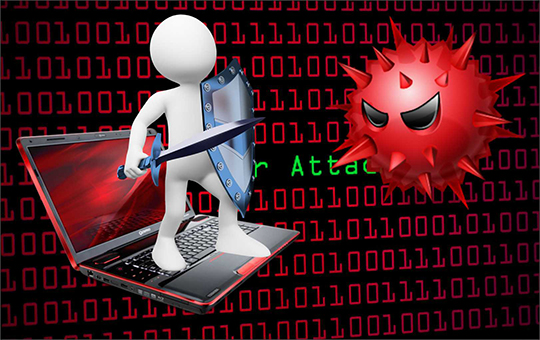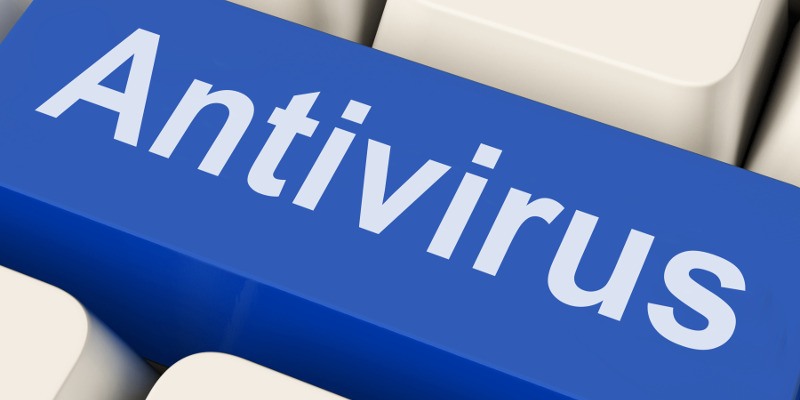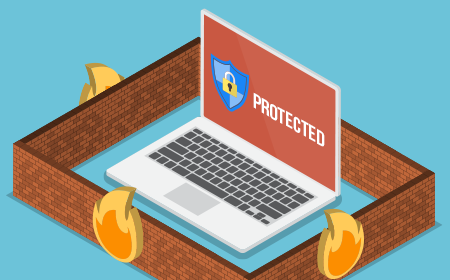12 Tips On How to Secure Your Computer From Hackers

Last Updated on March 24, 2024 by Darron Dennis
Our computers, laptops and phones have now become part of our lives. This is because everything we do these day is on the internet and with the rate at which we use theses devices, they become vulnerable to cyber criminals and hackers hence the need on how to secure your computers.
whether your running Windows, Mac OS, Linux or Android, if your device is not secured, you can be hacked by hackers and risk loosing important information or worse. The reason why most people fall prey to cyber criminals is because they don’t have the time to secure their devices or they don’t just care. But in most cases, we’ve found out that majority of people are interested in making their system secured but don’t just know how. For this reason, we’ve put this piece of information to guide you on how to secure your computers from hackers.
Although computer security is a huge thing but it’s always good keep your devices secured. Below we have 10 tips on how to secure your computer from hackers.
Table of Contents
What is computer security and why is it important?
Computer security is simply the act of securing your computers either with a software or a hardware. Computer security is important, primarily to keep your information protected. It’s also important for your computer’s overall health, helping to prevent viruses and malware and allowing programs to run more smoothly. It’s also important to keep your computer safe from thieves and hackers.
12 Tips On How to Secure Your Computer From Hackers
-
Install antivirus software and Anti Spyware

The first and best way to protect your computer from hackers is to install an antivirus software. This is because hackers sends virus through codes which are hidden in documents on the internet. When you install a good antivirus, it helps scan and remove every trace of virus fro your computer.
In addition, antivirus software plays a major role in protecting your system by detecting real-time threats to ensure your data is safe. Some advanced antivirus programs provide automatic updates, further protecting your machine from the new viruses that generate every day. After you install an antivirus program, don’t forget to use it. Run or schedule regular virus scans to keep your computer virus-free.
Spyware is a specific type of malware that is designed to secretly infect a computer. It then sits in the system, gathers information, and sends it to a third party. The information is typically of a sensitive nature, such as credentials or banking information. This can ultimately lead to identity theft, a multi-billion dollar industry.
In the spyware category, you have adware (often causing popups), Trojans (posing as a harmless software), and system monitors (such as keyloggers), all of which pose a pretty serious threat. Other forms of spyware like tracking cookies are typically harmless but are annoying. Thankfully, many antivirus programs have anti spyware built in, but there are some dedicated solutions.
If spyware has found its way onto your computer, then it’s very possible you can remove it. There are a ton of options for spyware removal. Installing a good antivirus software and scanning your computer regularly will eliminate every spyware presence. some good antivirus are Avast, kapaski, Norton antivirus.
-
Use a firewall

A firewall is a system designed to prevent unauthorized access to or from a private network. You can implement a firewall in either hardware or software form, or a combination of both. Firewalls prevent unauthorized internet users from accessing private networks connected to the internet, especially intranets. Thanks to Windows and IOS ,they have built-in firewalls, software designed to create a barrier between your information and the outside world. But that not withstanding, you can still install more firewall for more protection.
-
Can antivirus stop hackers?
Norton Antivirus stops hackers in some ways, but it doesn’t provide complete protection from hackers. Norton Antivirus is able to protect your computer from many of the tools hackers use to infiltrate your computer, but the program that keeps hackers from directly getting in to your computer is called a firewall.
-
Does McAfee protect against hackers?
McAfee Firewall will protect you from hackers and other prying eyes and will help prevent malware taking hold but you should also have antivirus protection.
-
Use complex passwords

The most secured way of protecting your computer is by using a complex password. this can help prevent illegal intrusions onto your computer network. The more secure your passwords, the harder it is for a hacker to invade your system.
More secure often means longer and more complex: Use a password that has at least eight characters and a combination of numbers, upper- and lowercase letters, and computer symbols. Hackers have an arsenal of tools to break short, easy passwords in minutes.
Don’t use recognizable words or combinations that represent birthdays or other information that can be connected to you. Don’t reuse passwords either; if you have too many passwords to remember, consider using a password manager like Dashlane, Sticky Password, LastPass or Password Boss.
-
Use a Decent Web Browser
The World Wide Web is a system of Internet servers that support specially formatted documents. Web browsers are used to make it easy to access the World Wide Web. Browsers are able to display Web pages largely in part to an underlying Web protocol called HyperText Transfer Protocol (HTTP). For the best browsing experience and security, its advisable to use a secure browser like chrome or Firefox
-
Keep your Operating Systems, apps and browser updated
Always install new updates to your operating systems as soon as they arrive. Most updates include security fixes that prevent hackers from accessing and exploiting your data.
The same goes for your favorite apps. Today’s web browsers are increasingly sophisticated, especially in privacy and security. Be sure to review your browser security settings in addition to installing all new updates. For example, you can use your browser to prevent websites from tracking your movements, which increases your online privacy.
-
Ignore spam
Spam mail, also known as junk email, is unsolicited messages sent in bulk by email. Spam mail are dangerous messages. Most spam are irritating and time-consuming, but some spam is positively dangerous to handle. Usually email scams are trying to get you to give up your bank details so that the fraudsters can either withdraw money, or steal your identity. Such messages include phishing scams and advanced fee fraud. So whenever you get a spam message, just delete it.
-
Never Leave Your Computer Unattended
It’s always a good idea not to leave your computer or phone open or unattended to. If you steeping out for a while make sure you shutdown your system. you can go a bit further by locking your the room where your computer is located or your server room. Leaving you computer unattended to will give rise to unauthorized individuals mishandling your device and there by physically damaging or hacking your computer.
-
Don’t Trust Public Wifi
If you surf the web constantly using a WiFi, you should know that much of your internet connection (web browsing and email) is being sent over the connection unencrypted? Anyone malicious could be listening in and stealing your passwords over the network. If you have a 3G connection then use that, but if not, you’ll need to secure your connection. Websites that use https (Facebook and Twitter for example) encrypt your data, but most websites won’t. For this, you’ll need to use a VPN or virtual private network. This encrypts your connection by connecting to a secure server in the middle.
-
Secure your network
If you’ve got a new router, chances are it comes with no set security or a default security password. Always log in to the router and set a password using a secure, encrypted setup. This prevents intruders from infiltrating your network and messing with your settings.
-
Don’t Visit dodgy or affected sites
The problem is, that there are sites out there that are out to get you. They may have been affected by a worm that modifies the website with the intention to infect your computer with a virus. Some sites are there to deliberately get you. Be careful where you’re browsing- and again make sure you have an updated antivirus software installed in your system.
-
Use two-factor authentication
Passwords are the first line of defense against computer hackers, but a second layer boosts protection. Major online companies like Facebook, Google, Apple and Microsoft let you enable two-factor authentication, which requires you to type in a numerical code in addition to your password when logging in. This hardens your account to the outside world.
-
Use encryption
Even if someone is able to steal your data or monitor your internet connection, encryption can prevent hackers from accessing any of that information. You can encrypt your Windows or macOS hard drive with BitLocker or FileVault, encrypt any USB flash drive that contains sensitive information, and use a VPN to encrypt your web traffic. Only shop at encrypted websites – you can spot them immediately by the “https” in the address bar accompanied by a closed padlock icon.
-
Conclusion
From the list above, it can be observed that using a complex password and installing an antivirus is very important. But most important is a combination of hardware and software defenses, as well as best computing practices. This will remain the best barrier between you and online predators.